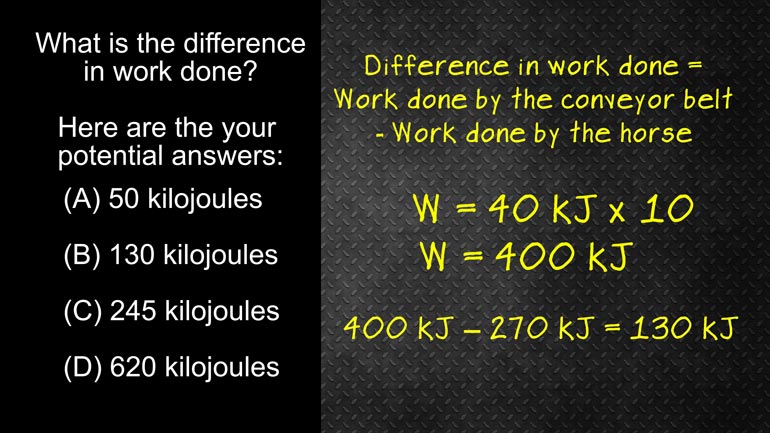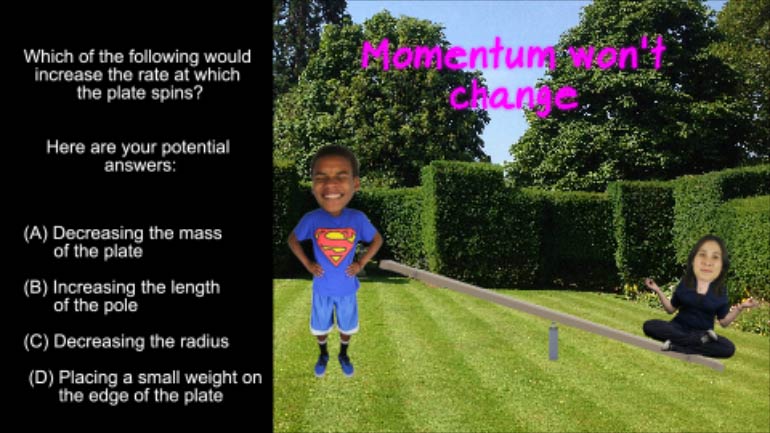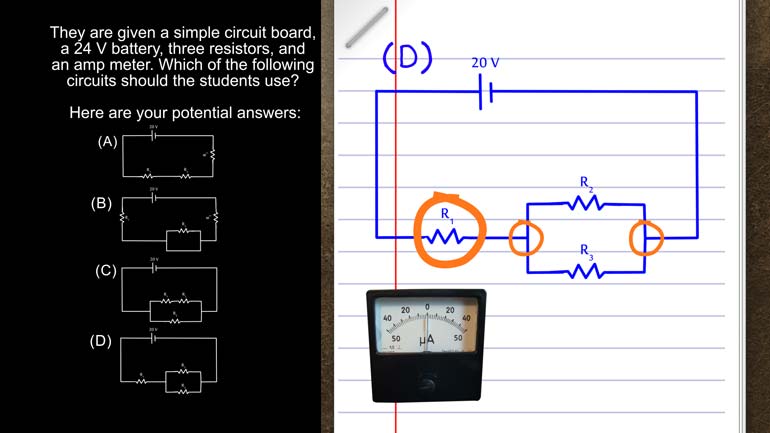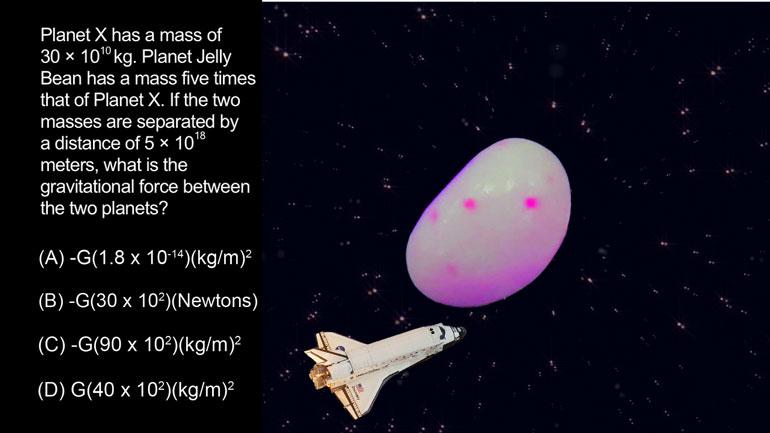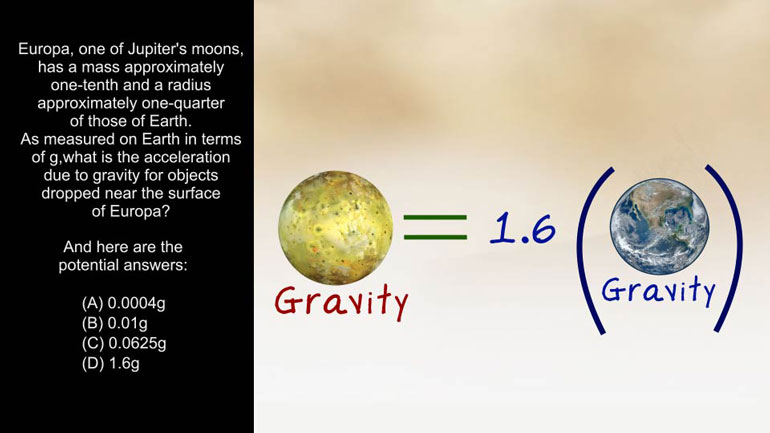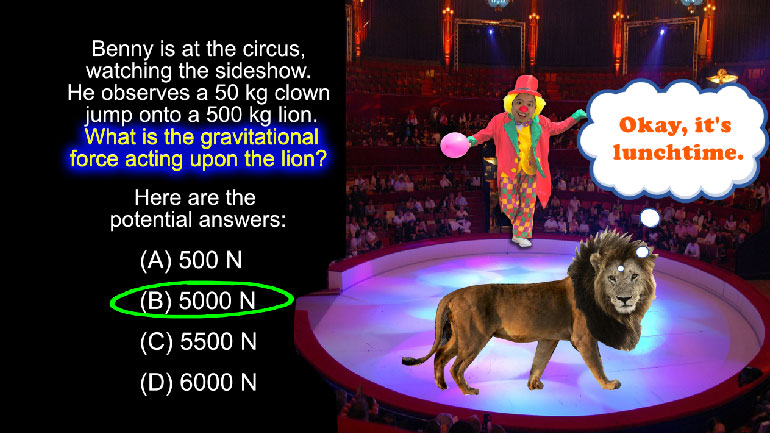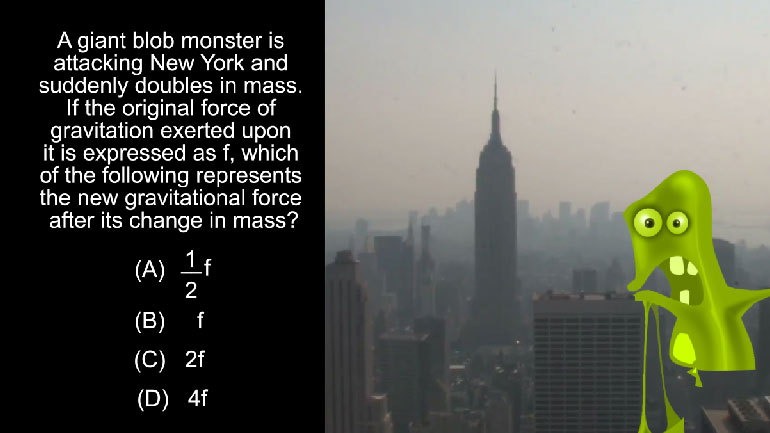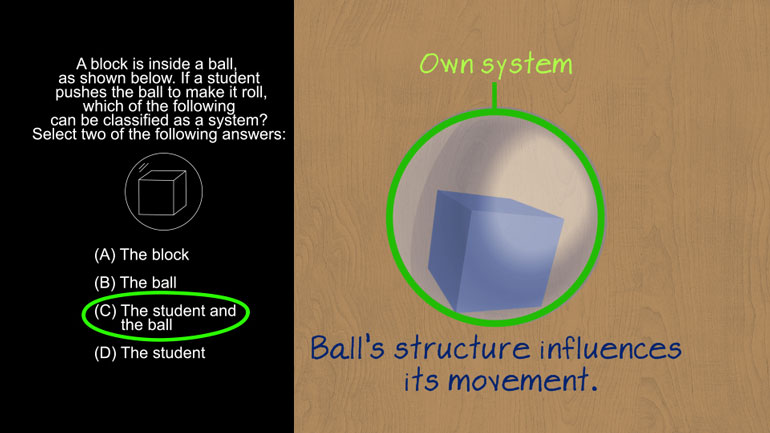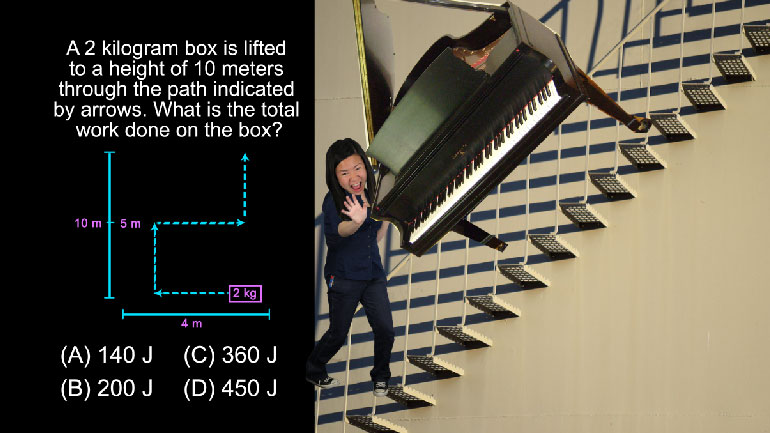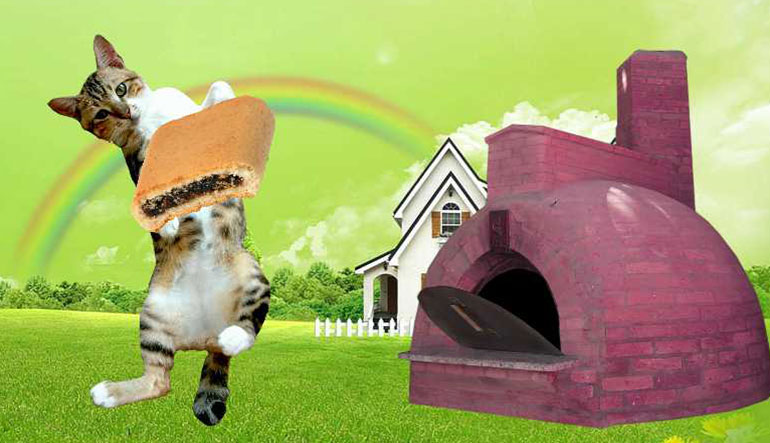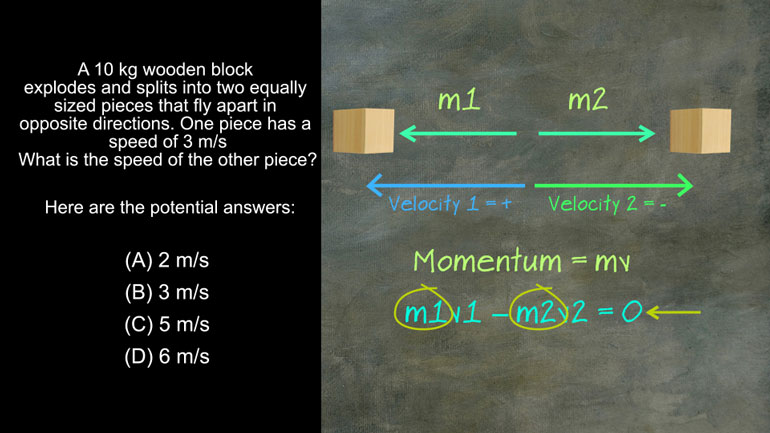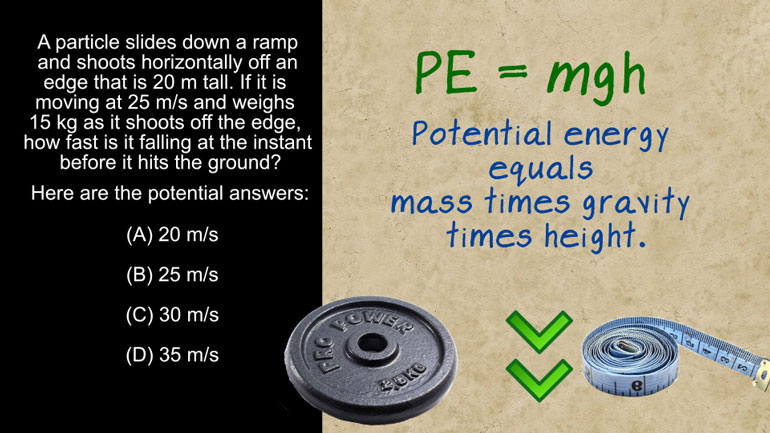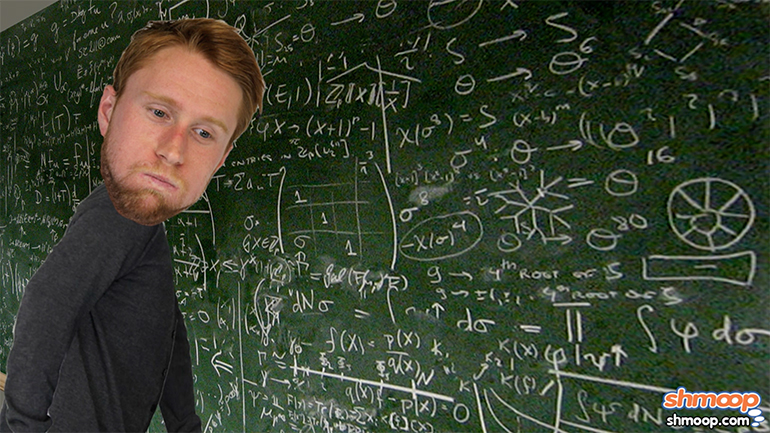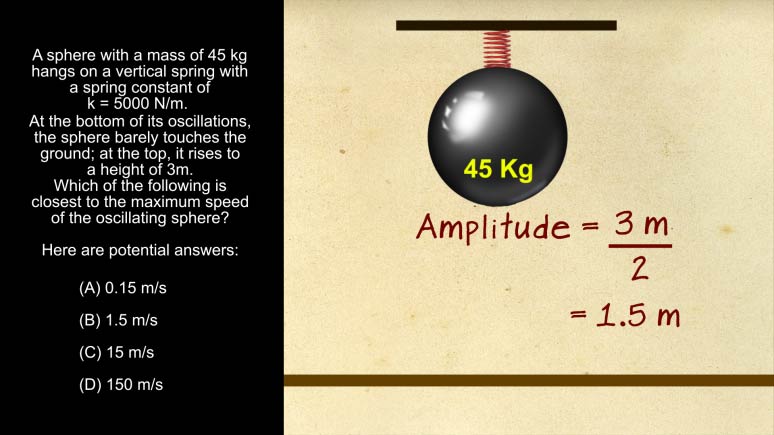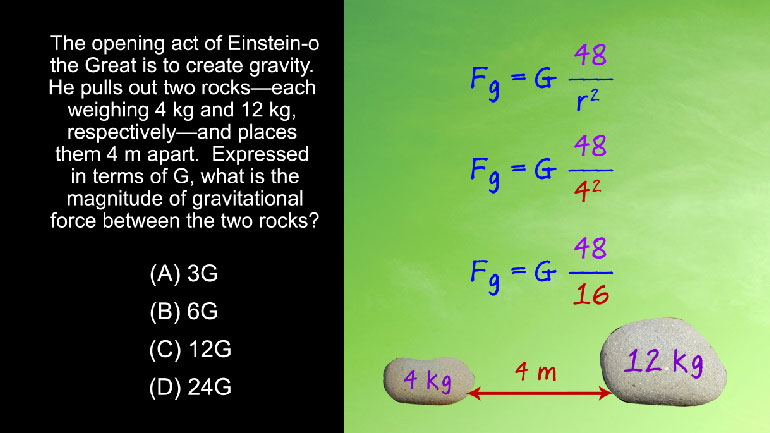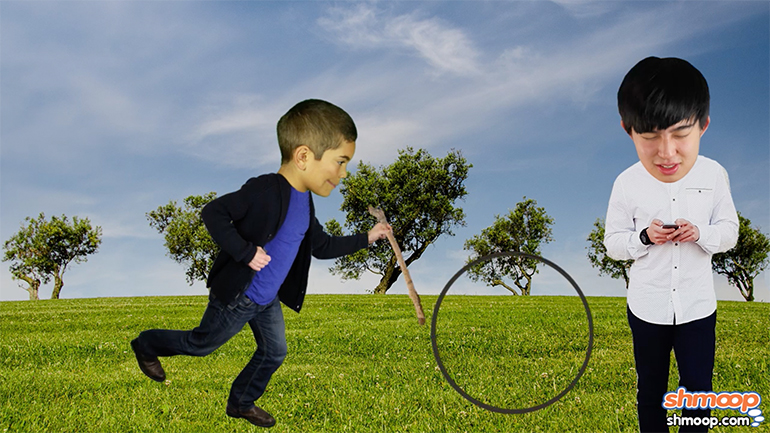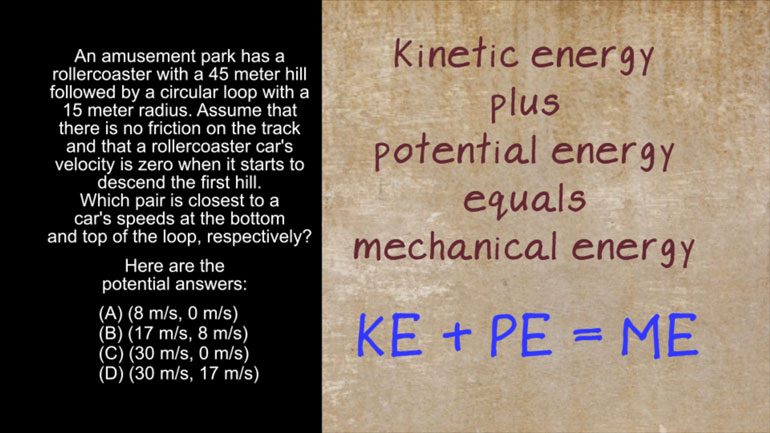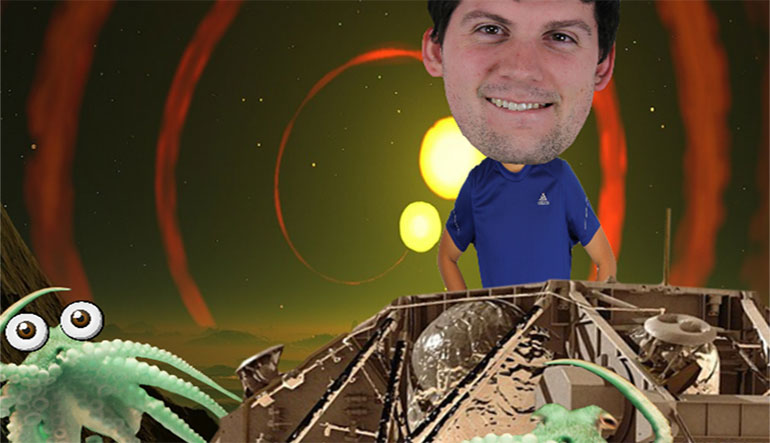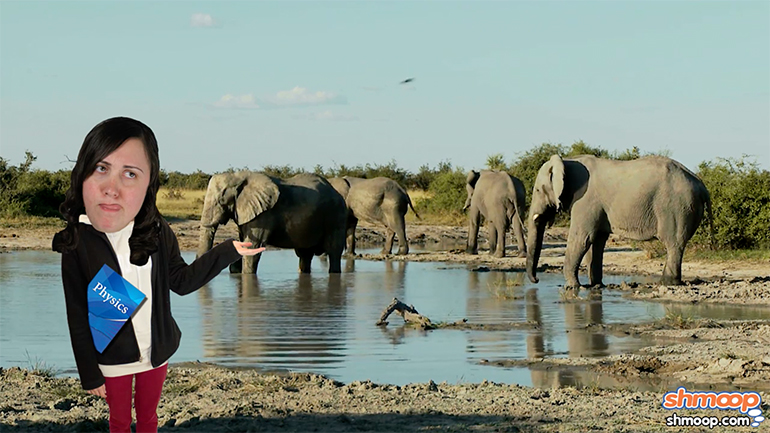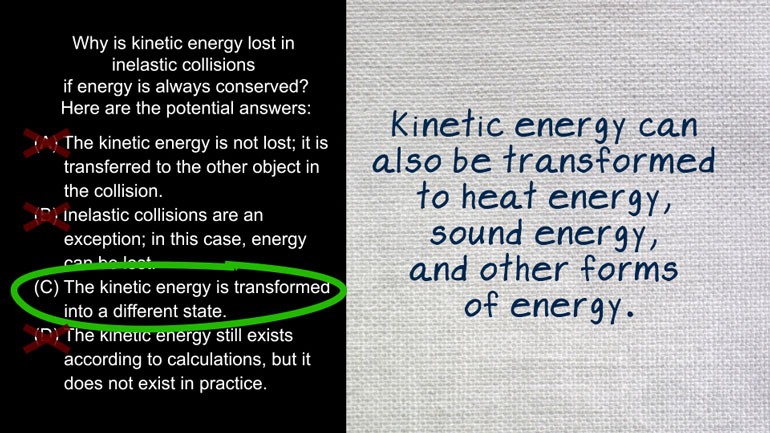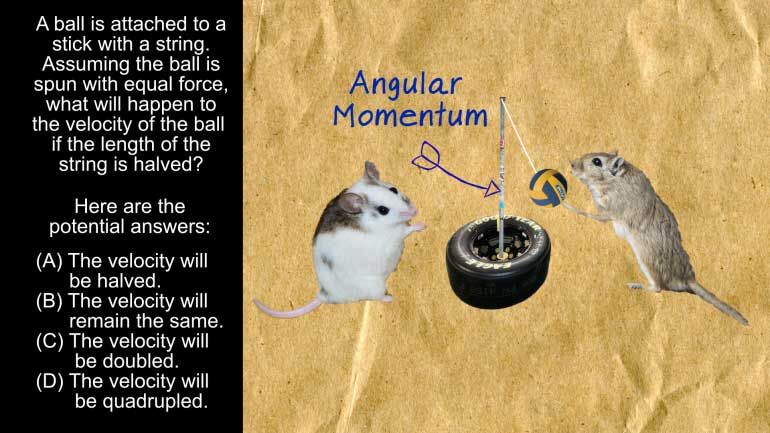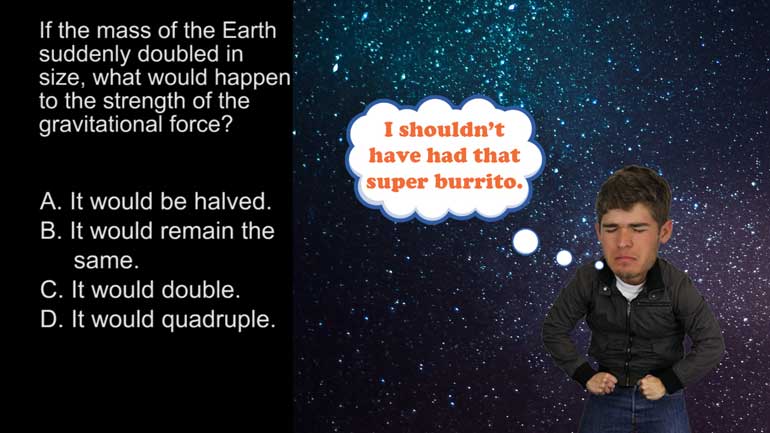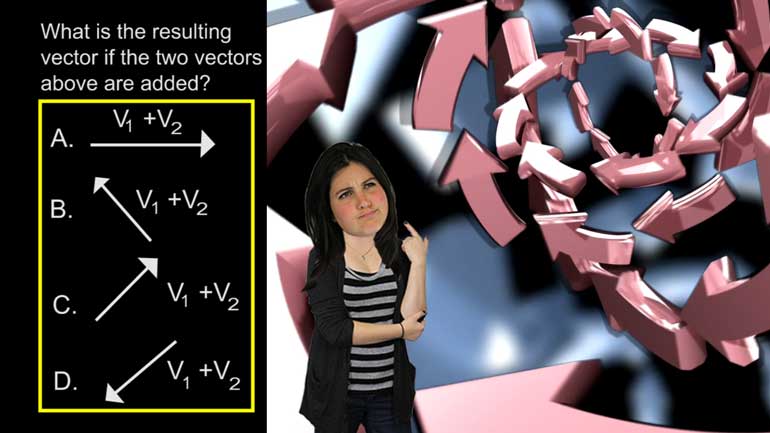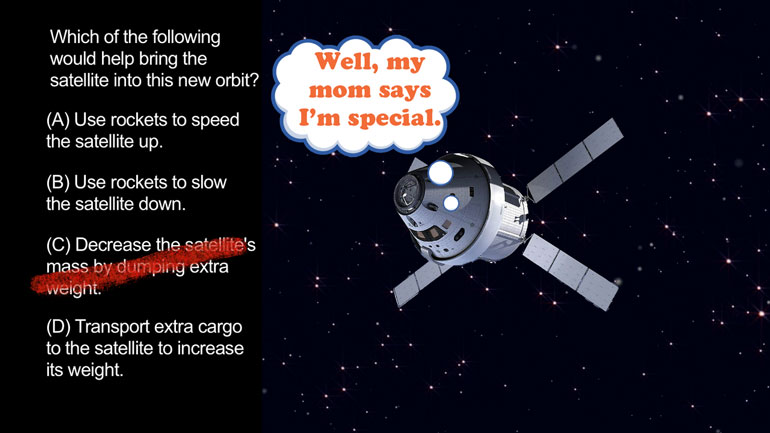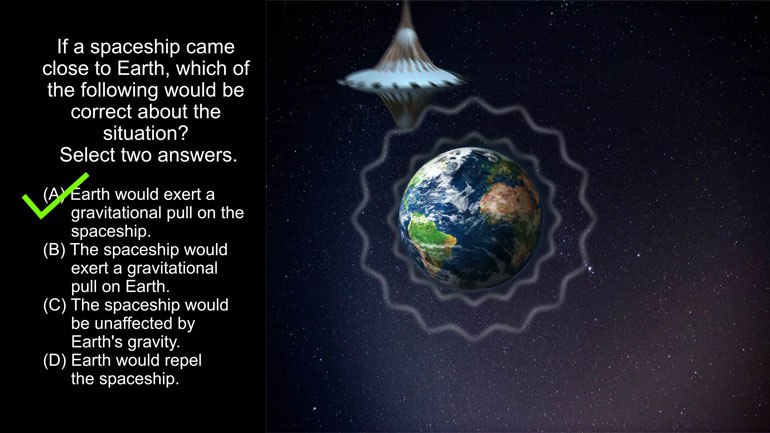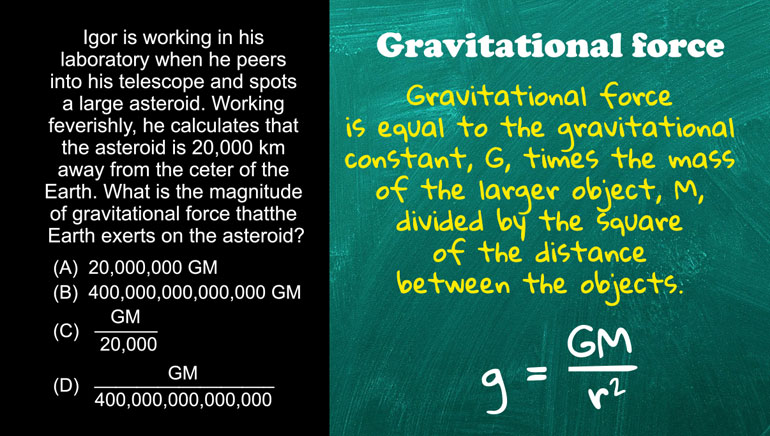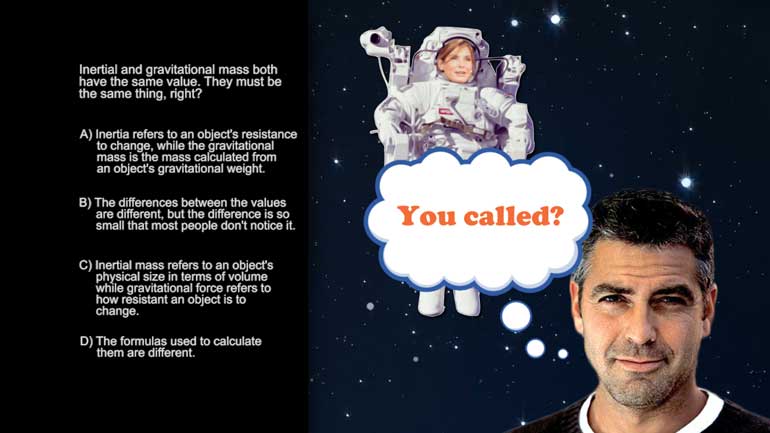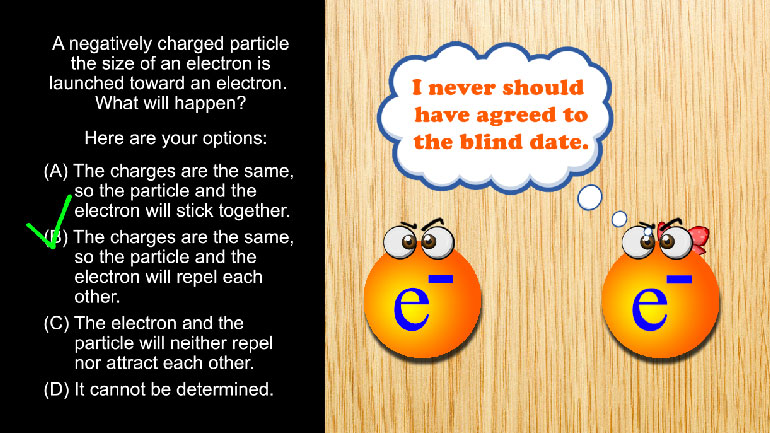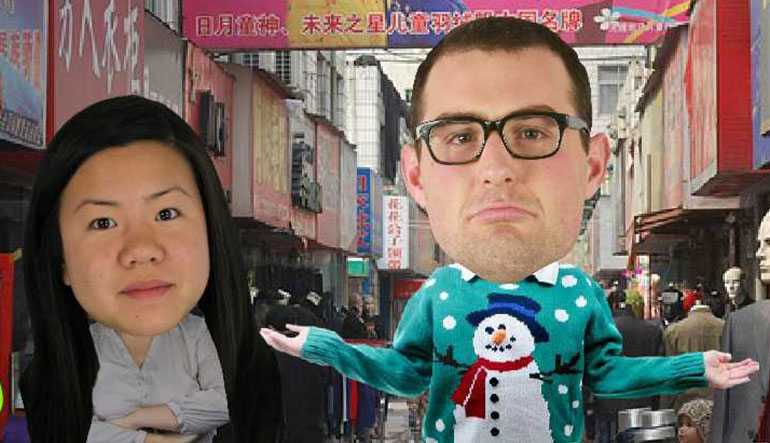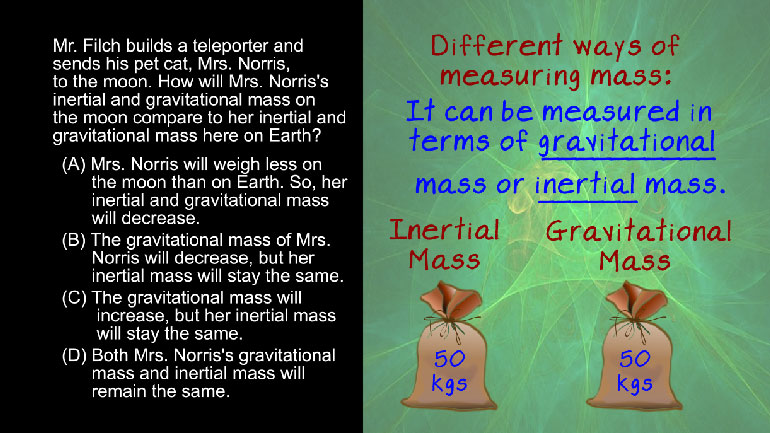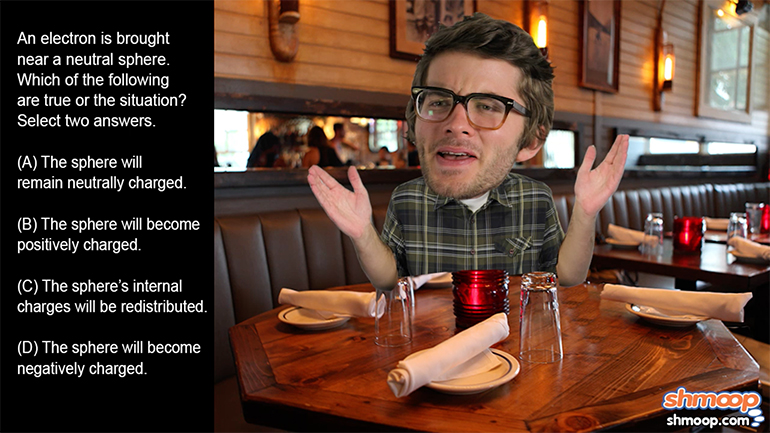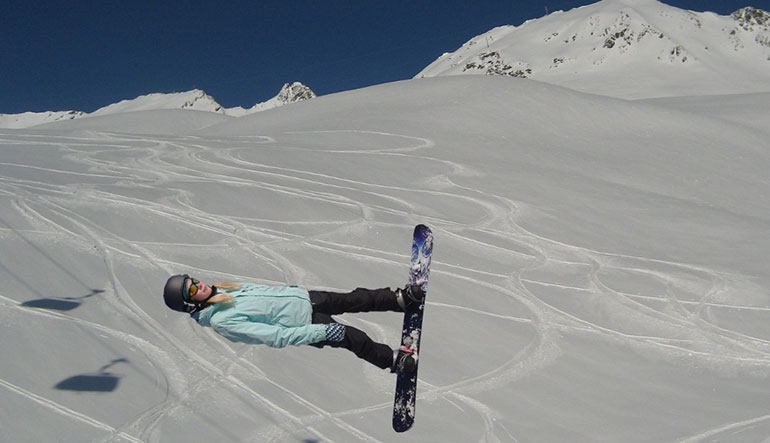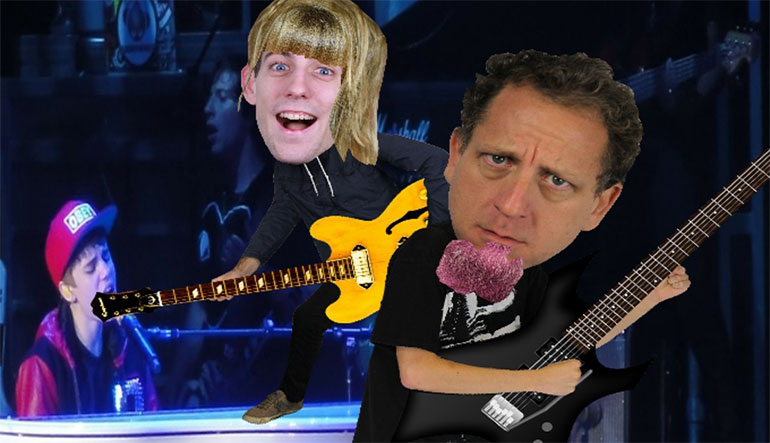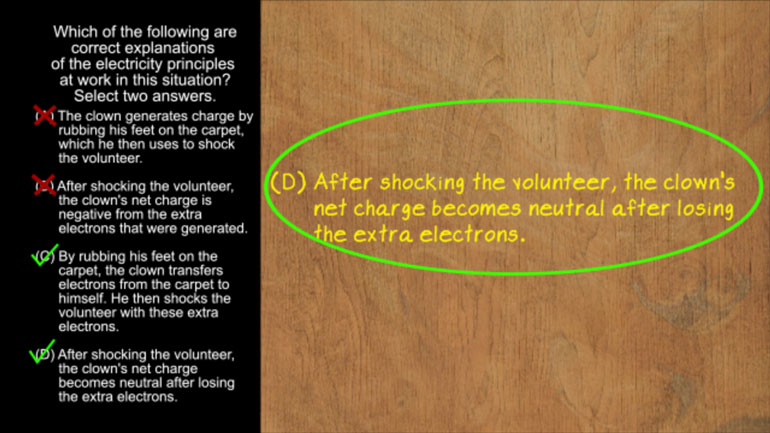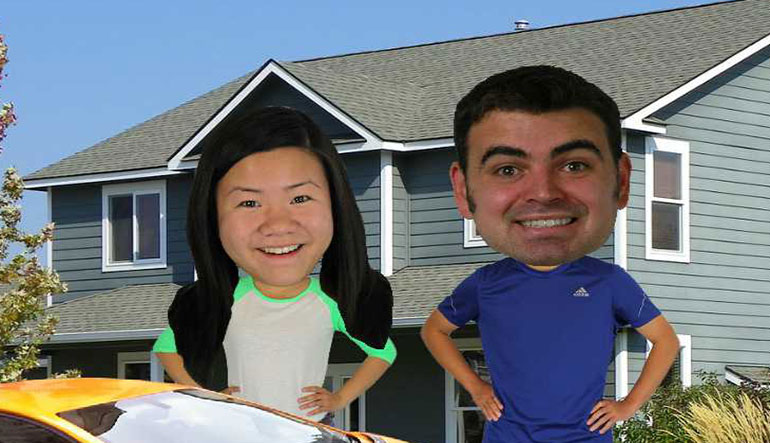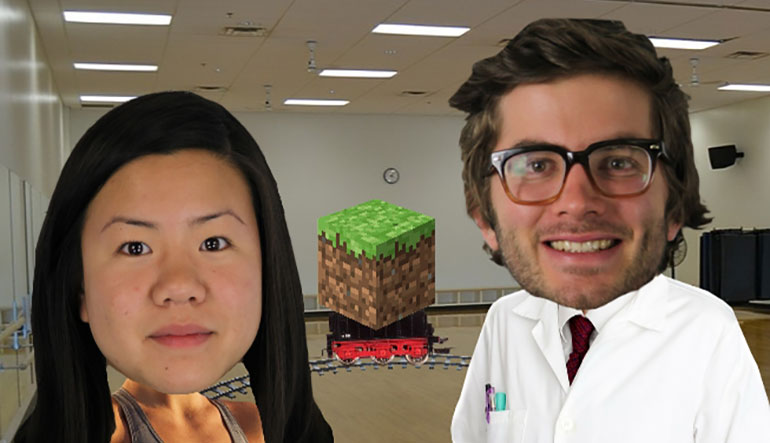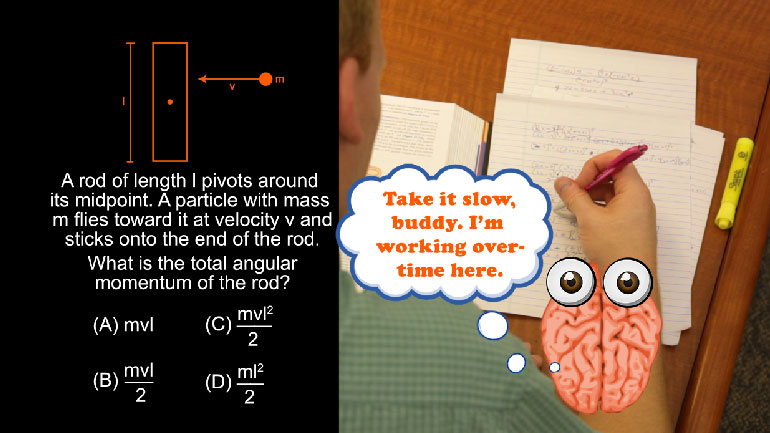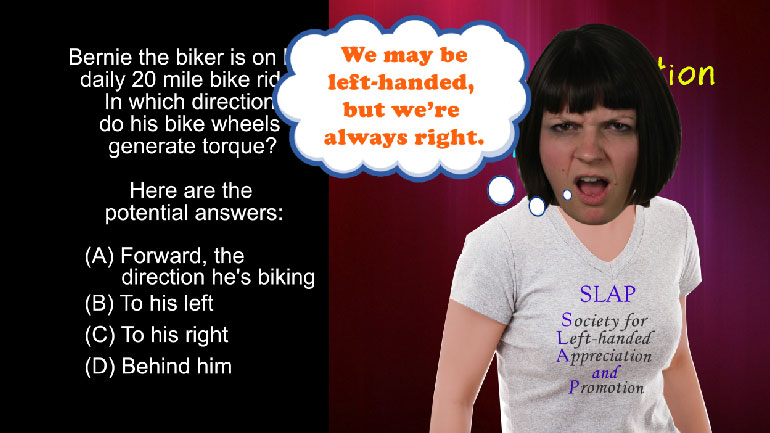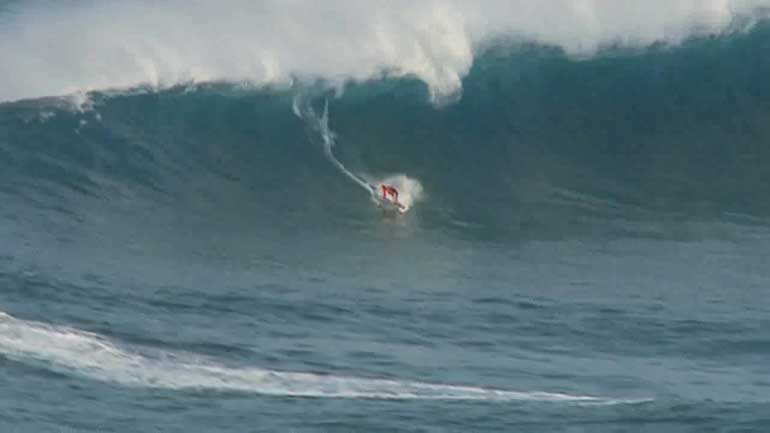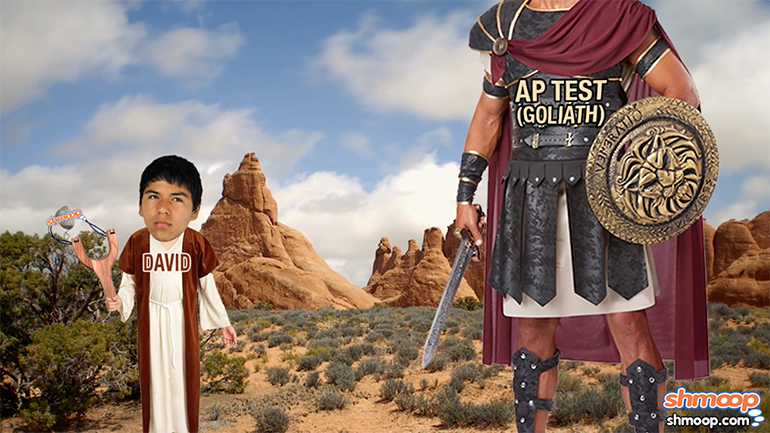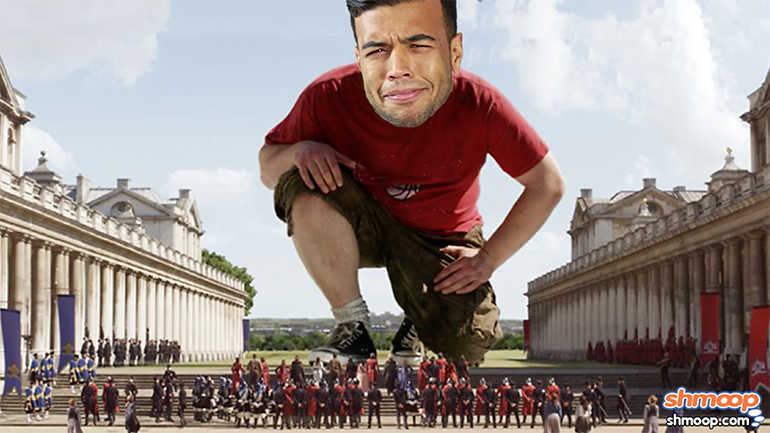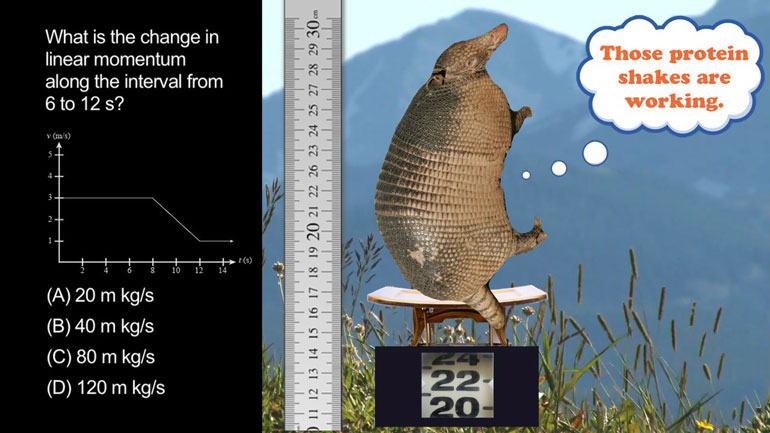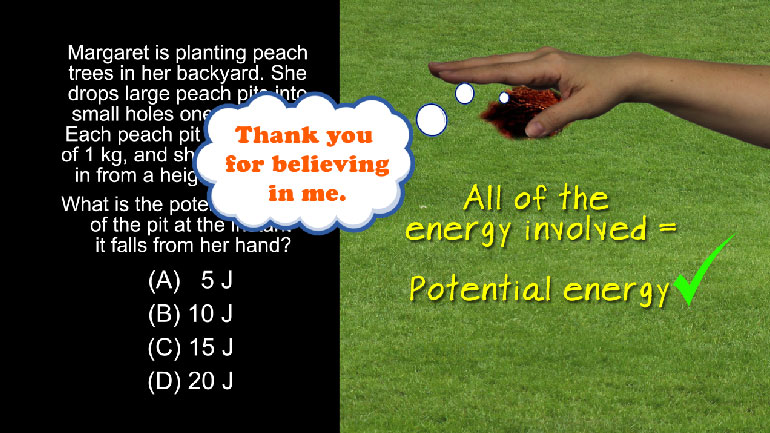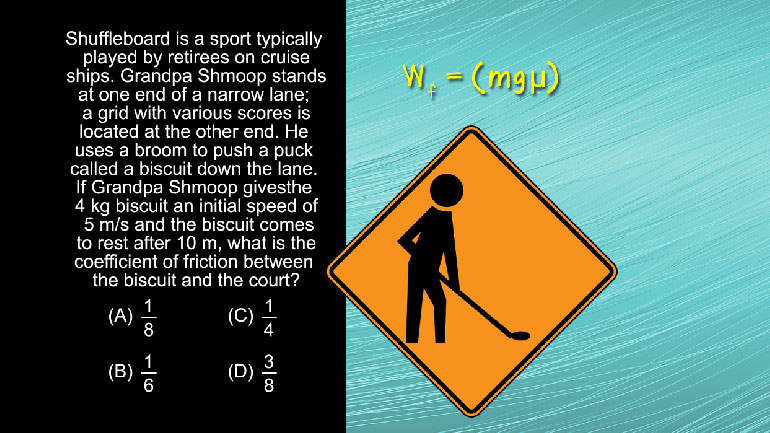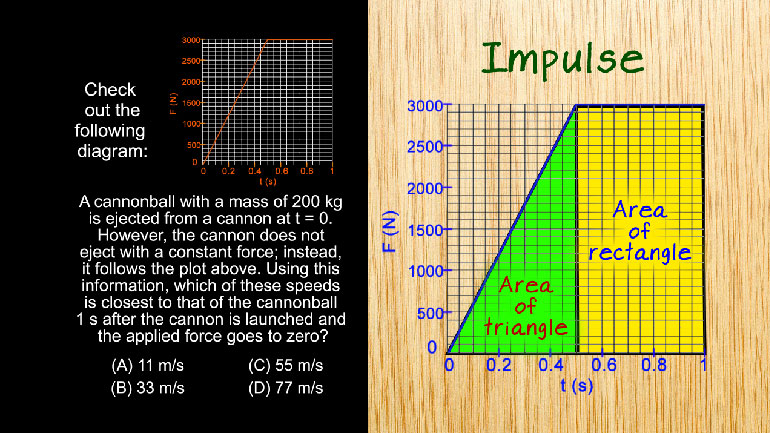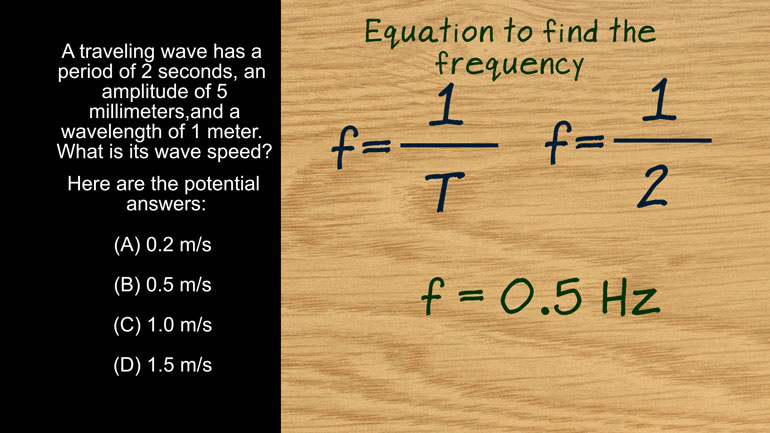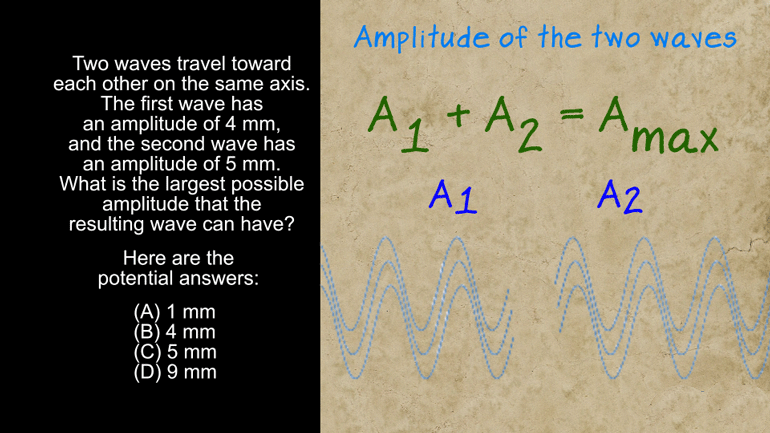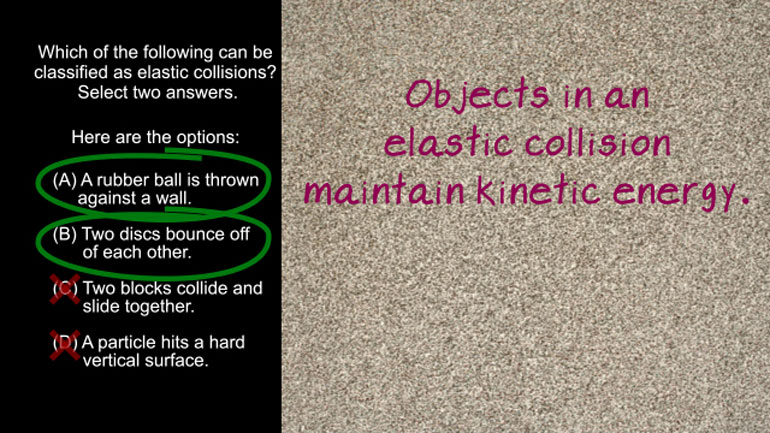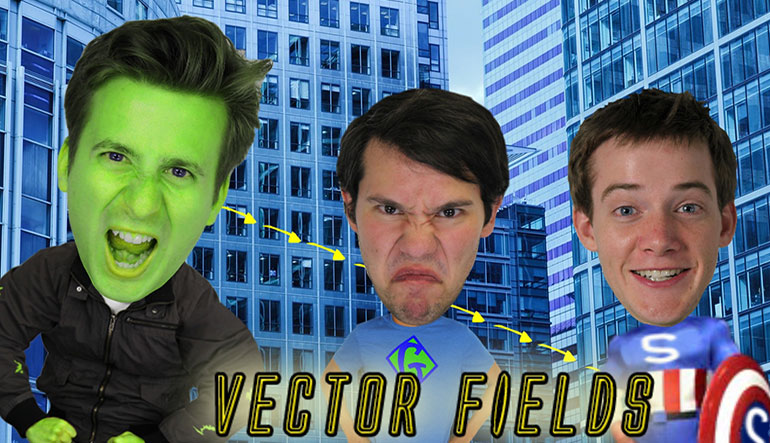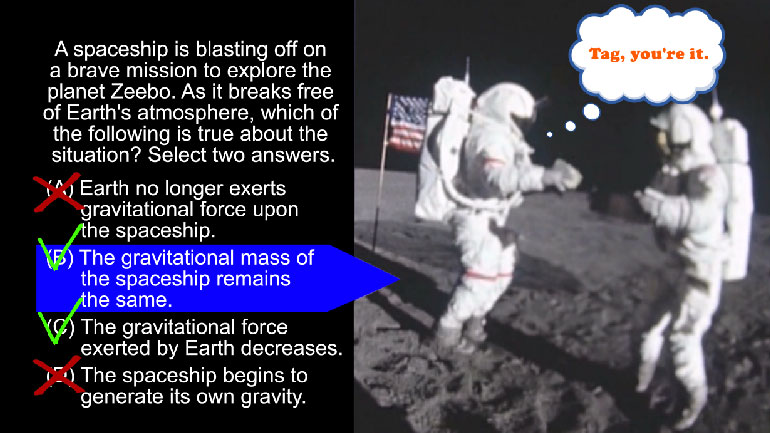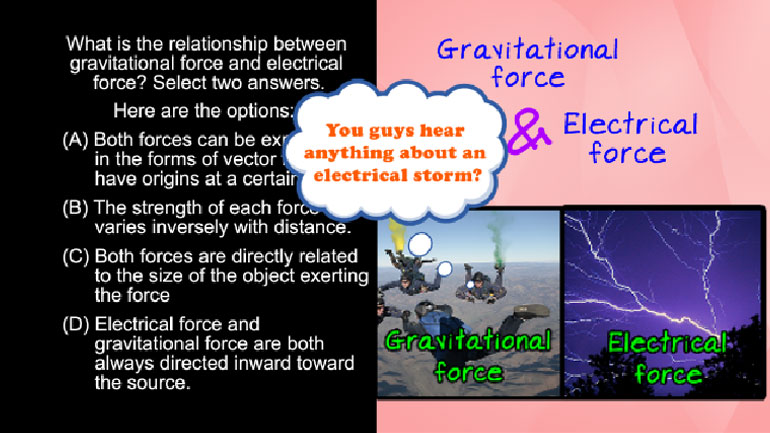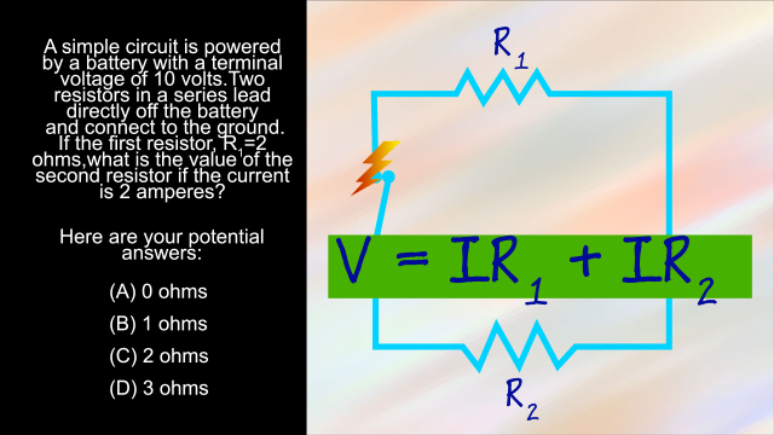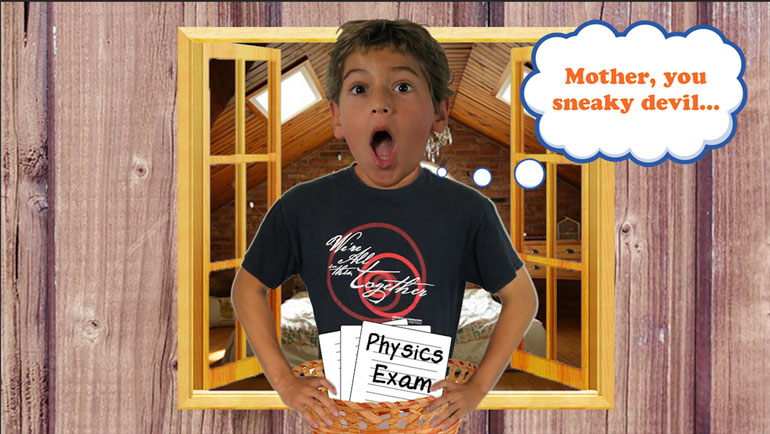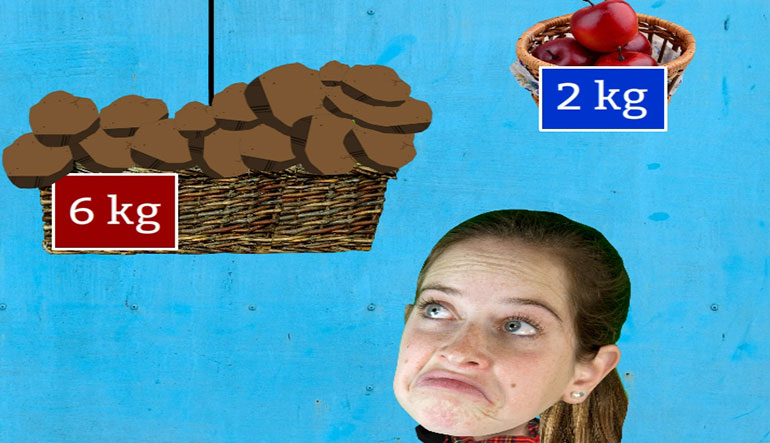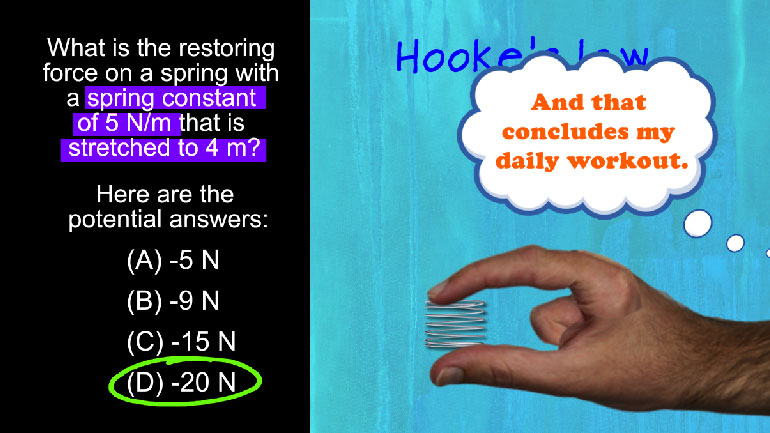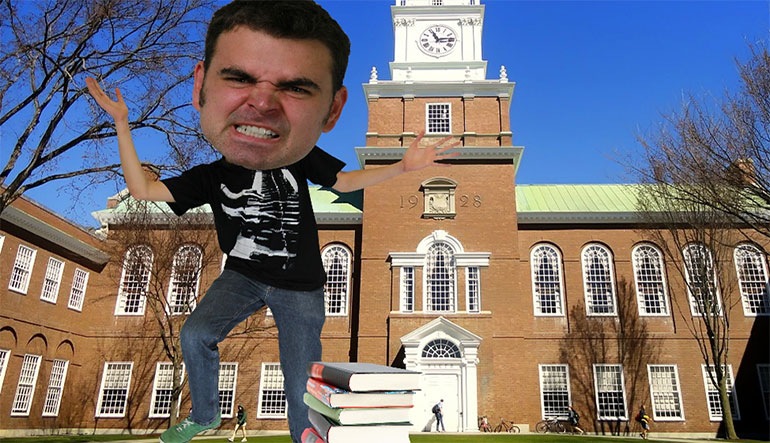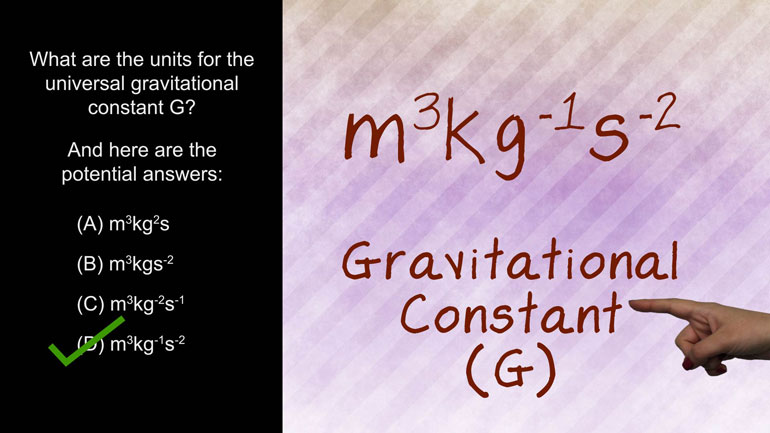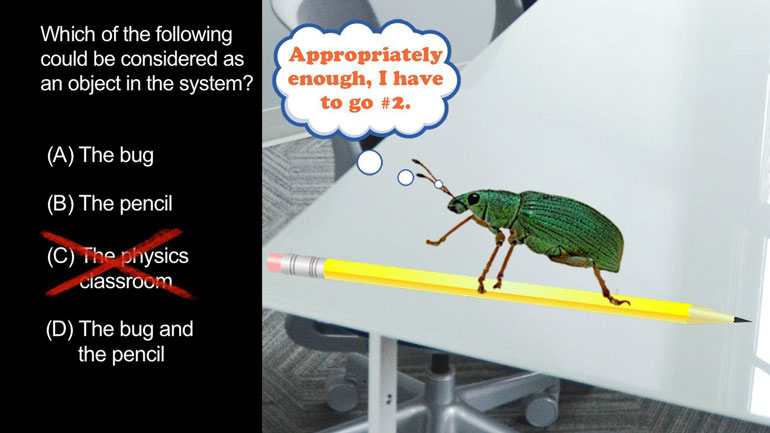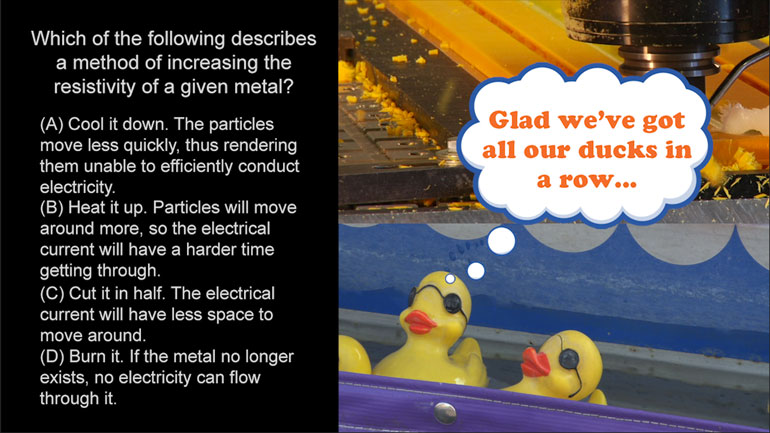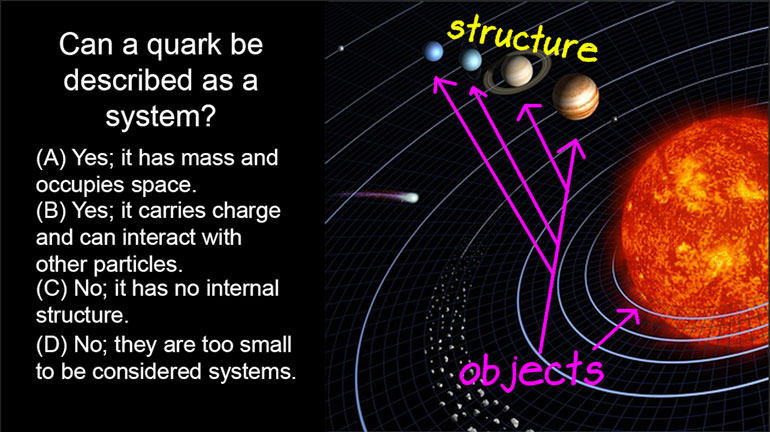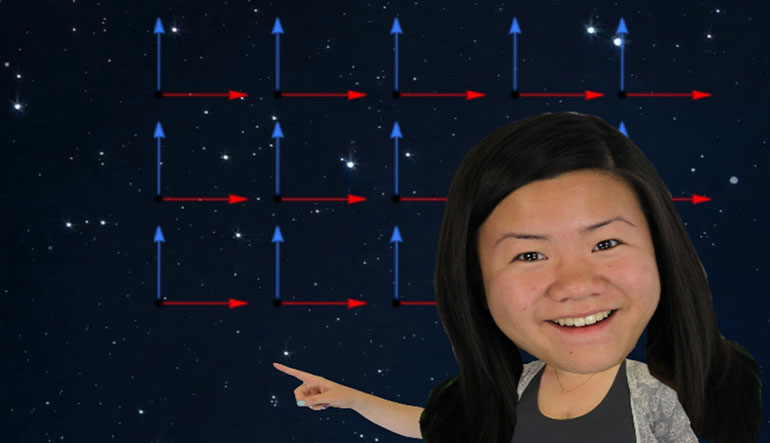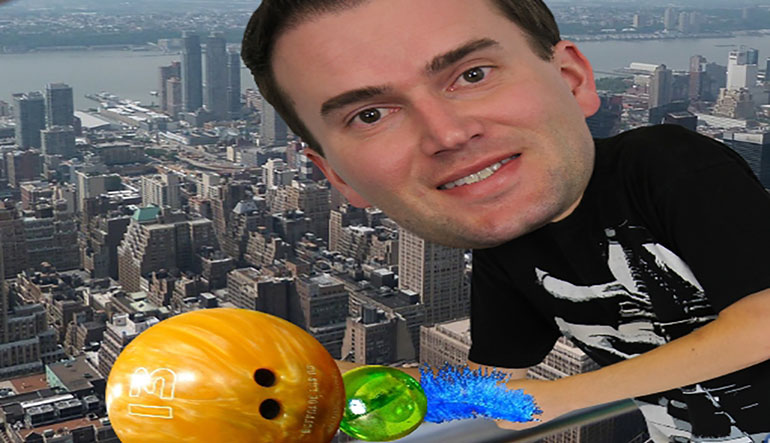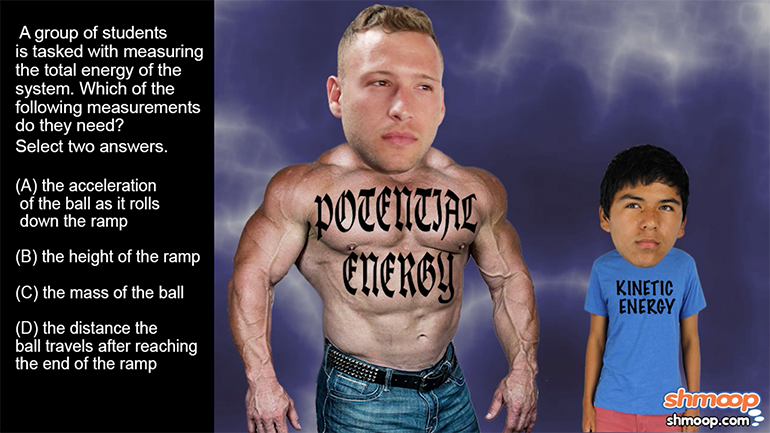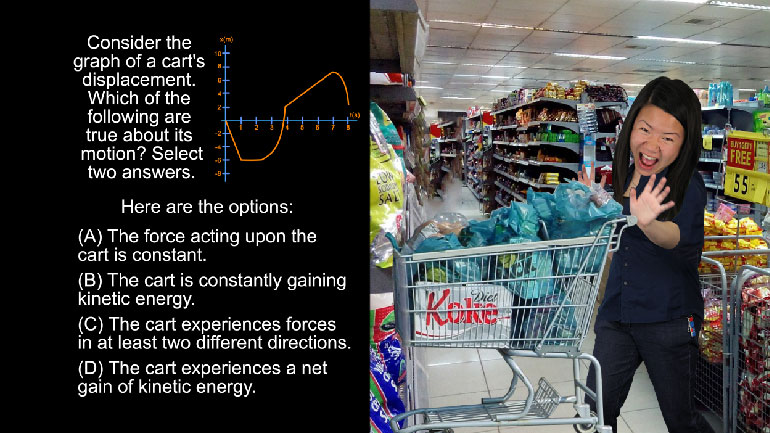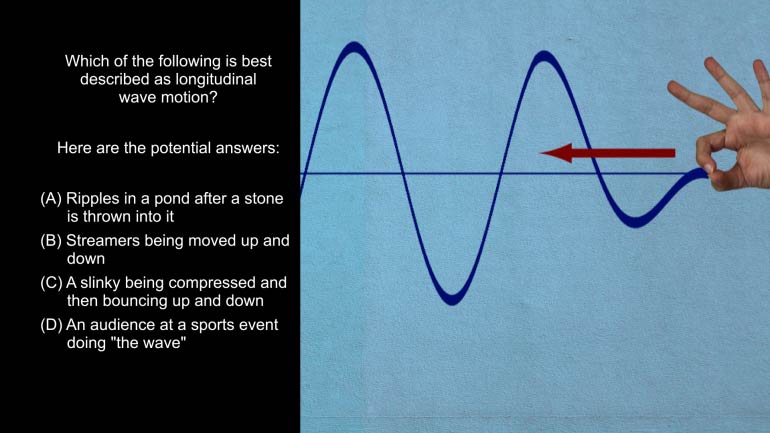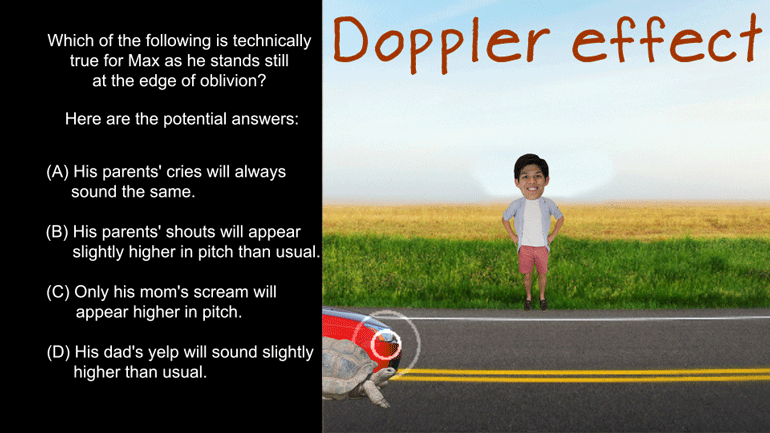ShmoopTube
Where Monty Python meets your 10th grade teacher.
Search Thousands of Shmoop Videos
AP Physics 1 Videos 69 videos
AP Physics 1: 3.3 Changes and Conservation Laws. What is the difference in work done?
AP Physics 1: 3.5 Changes and Conservation Laws. Which of the following would increase the rate at which the plate spins?
AP Physics 1: 2.4 Changes and Conservation Laws. Which of the following circuits should the students use?
AP Physics 1: 1.5 System Interactions and Changes 241 Views
Share It!
Description:
AP Physics 1: 1.5 System Interactions and Changes. How much energy is expended in one lap?
Transcript
- 00:00
Thank you We sneak and here's your smoke du jour
- 00:05
Brought to you by exercise You can go to the
- 00:07
gym to work out your body but you're here to
- 00:10
work out your mind All right Pushing a ten kilogram
- 00:13
block around a circular track is tiring you know although
Full Transcript
- 00:16
the block it's nothing out of the experience At least
- 00:19
you logged your workout for the week or a month
- 00:21
If the track has a radius of one hundred meters
- 00:24
and the block track surface has a kinetic coefficient of
- 00:28
friction of zero point to how much energy did you
- 00:32
expend in one lap and hear the pencil answers All
- 00:36
this funky letter writing Well first of all we have
- 00:39
to find a new personal trainer pushing a wooden block
- 00:42
around a track isn't gonna get us ready for beach
- 00:44
season That's what we get for hiring a physicist to
- 00:46
get us in shape huh Well to complete the calculation
- 00:49
here we need to employ the work energy the're Um
- 00:52
which defines the relationship between work and energy Yeah Wow
- 00:56
that was a shock That wasn't it Now work equals
- 00:58
force times distance And in our case here the force
- 01:01
we're looking at is the force of friction The force
- 01:04
of kinetic friction equals the coefficient of friction times mass
- 01:07
times gravity to determine the work done we just need
- 01:10
to add distance to the equation Since we're going in
- 01:13
a circle we need to know the circumference to calculate
- 01:16
the distance traveled We know that the radius of the
- 01:19
circle is a hundred meters so we just double it
- 01:21
Multiply that by pi to get the circumference Remember the
- 01:24
formula empire Okay Lookit our potential answers We can see
- 01:29
that pie is included in the final results so we
- 01:32
don't have to actually figure out the exact number We
- 01:35
can just stick with two hundred pie now Let's Plug
- 01:38
in the Numbers work equals point 2 times ten kilograms
- 01:43
times nine point eight meters per second squared times two
- 01:46
hundred py meters Which gives us an answer of three
- 01:49
thousand nine hundred twenty pie Jules well if we convert
- 01:53
jewels to kill a jules will get an answer of
- 01:56
three point nine Two pi killa jewels So option a
- 01:58
is the correct answer Now on to the next question
- 02:01
If we only go to the gym three times a
- 02:03
month How much are we really paying for our monthly 00:02:06.5 --> [endTime] membership No
Related Videos
AP Physics 1: 2.5 Changes and Conservation Law. At what point(s) in this situation is energy lost in any form?
AP Physics 1: 1.4 Changes and Conservation Laws. Find the current across R2.
AP Physics 1: 2.4 Changes and Conservation Laws. Which of the following circuits should the students use?
AP Physics 1: 1.4 Waves. Which of the following is technically true for Max as he stands at the edge of oblivion?
AP Physics 1: 1.5 Waves. What can possibly occur when the two waves reach each other?
